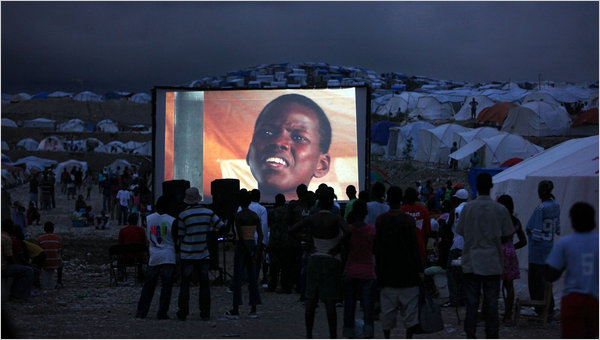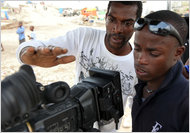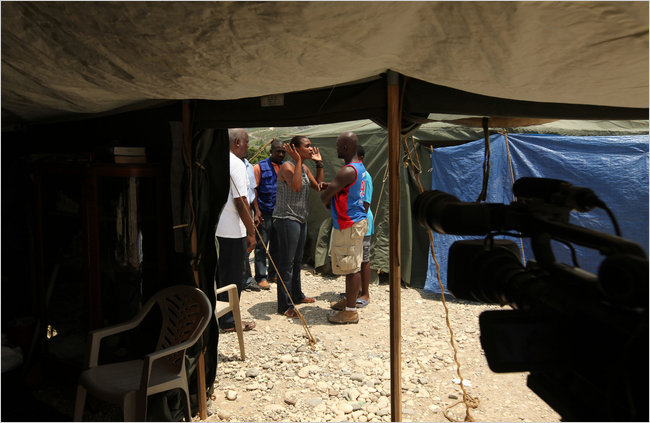| Want to send this page or a link to a friend? Click on mail at the top of this window. |
| Posted June 10, 2010 |
|
||
|
|
||
 |
||
|
JAMES ESTRIN/THE NEW YORK TIMES |
||
| A soap opera played in the evening last month in the Caradeux Camp. Outdoor screens are popping up across Port-au-Prince. |
|
By DAMIEN CAVE |
 |
| Bringing Cinema to Haitian Tents: Audio Slide Show |
 |
|
JAMES ESTRIN/THE NEW YORK TIMES |
| A soap opera filmed last month at the Caradeux Camp. The programs are meant for those without televisions or radios. |
| Wehaitians.com, the scholarly journal of democracy and human rights |
| More from wehaitians.com |